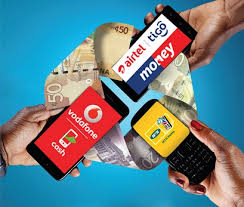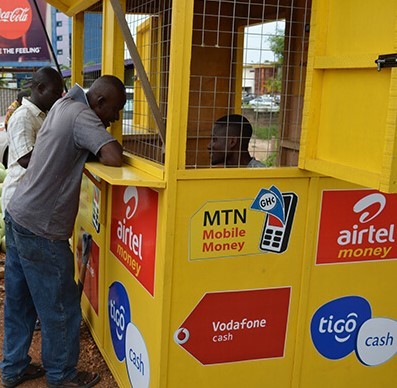In recent months, there has been the resurgence of the publicly reviled idea of mobile money taxation. Proponents of the tax believe that Telco’s are making such astronomical profit that its almost sinful and morally wrong for the state not to partake of this profit.
Opponents of the tax are of the view that any such attempt to tax mobile money will disincentivize the use of the service and will put in jeopardy government’s policy of promoting financial inclusion of the informal sector.
Fortunately, or unfortunately (depending on whose side you are on), Government in the 2021 budget decided not to take the plunge with mobile money taxes. But was this a missed opportunity, a deferred action or simply the right policy decision?
In this article, I will attempt to set out the tax implication of a mobile money tax and with whom the ultimate tax burden will reside. Mine is not to conclude on the appropriateness or otherwise of the tax, but to allow the reader to make his/her own valued decision on the subject by answering the five questions below. Hopefully, the responses to each question will enrich the discourse of a mobile money taxation.

- Do the Telco’s pay taxes on mobile money?
Contrary to what most people believe, the Telecom companies also called the Network Operators; MTN, Vodafone and Airtel-Tigo do not operate the mobile money service. They are required under the Payment Systems and Services Act, 2019 (Act 987) to set up subsidiary companies. Thus, we have for example, Vodafone Ghana Mobile Financial Services and MobileMoney Limited by MTN, (we will call them the Service providers). Although the shareholding of these companies is predominantly held by the Telco’s, this distinction is still important to make.
Not only because of the hallowed principle of Salomon v Salomon (a company is separate and distinct from its shareholders) but also because taxation is a personal obligation which cannot be transferred to another person.
Additionally, the distinction removes the Service Providers from the regulation of the National Communications Authority to the regulation of the Bank of Ghana.
As it stands now, the Service Providers, like all other companies are required to pay corporate income taxes on their profits. In exceptional situations like the Communication Service Tax, specific companies are required to pay taxes on their gross revenues. Generally, where the company makes no profit in a year, it is not required to pay corporate income taxes in that year.
There is currently an impasse on whether withholding tax should apply on the payments made by resident companies for the services provided by the Service Providers. The practical challenges of this stalemate are not lost upon us.

The revenue streams of Service Providers are derived from their permissible activities under the law. The permissible activities include domestic payments, domestic money transfers (including transfers to and from bank accounts), bulk transactions including payments of salaries, benefits and pensions, cash-in and cash-out transactions, inward international remittances in partnership with banks, saving products in partnership with a bank or specialised deposit-taking institution authorised by the Bank of Ghana, credit products under-written by a licensed insurer, For each permissible activity, the Service Provider has a revenue opportunity by charging a service fee.
The fees range from 0% to 5% of the transaction; depending on the Service Provider. This revenue is what the Service Provider will recognize and subject to general accounting and tax principles to arrive at a taxable profit for purposes of taxation. Where a taxable profit is arrived, a CIT of 25% is paid to the Ghana Revenue Authority (GRA).
- What is the taxable opportunity – Revenue or Transaction Values?
Herein lies the faux pas. The revenue of the Service Providers should not be confused with the transaction values that they report. The transaction values of the Service Providers are not the revenues of the Service Providers. As at February 2021, according to the Bank of Ghana, the reported mobile money transactions value was GHS 67.9 billion. Inherent in the transactions values is the revenue opportunities for the Service Providers. Can we therefore assume that up to 5% of the transactions value should automatically be revenue recognized by the Service Providers? No, we cannot. The revenue opportunity should be determined based on their taxable opportunity.
What then is their taxable opportunity? The transactions that are actually subject to a service fee. Not all transactions are subject to a fee. For example, we know that some Service Providers do not charge a service fee when e-money is transferred either within the network or outside the network.
We also know that when money is loaded onto one’s own wallet, there is no service fee or even when utility fees are paid. Albeit, these are transactions which will be recognized in determining transactions value reported at the end of the day although they do not provide any revenue opportunity for the Service Provider. Therefore, in order to arrive at the accurate revenue for the Service Providers, we must isolate each taxable opportunity, from the numerous transactions. We can however safely say, that the transaction values are not equal to the revenue of the Service Providers, neither is up to 5% of the transaction value equal to the revenue of the Service Providers.
- How will a mobile money tax look like?
Proponents of the tax insist that any such mobile money tax will not be borne by the consumer but solely by the Service Providers. This position therefore automatically, cancels out a Value Added Tax, which is a consumption tax borne by the ultimate consumer. In any case, the classification of mobile money as a financial service also removes it from the current ambit of VAT which exempts financial services. This leaves a direct tax on the income of the Service Providers. But will such a direct tax be simply passed on to customers or borne exclusively by the Service Provider. This must be considered in the light of the general operation of corporate income taxes as it applies to all businesses.
Taxes are possibly the biggest expense items of a business outside of payroll. One of the principles of taxation is the neutrality of tax. What this means is that considerations of tax should not influence business decisions. Thus, commercial decisions should be based on commercial reasons and not on taxes. But we know that this is not necessarily the case; even globally. Thus, businesses consider the tax impact on their profits in order to set their margins. When the CST, a direct tax, was first introduced, the Telco’s tacitly agreed to bear the burden of the tax. Hence, the tax was not passed on to the consumers and “ate” into the profits of the Telco’s. This was the position for a long time until the midyear budget in July 2019 was read. The budget announced a 50% increase in the CST from 6% to 9%. This saw the Telco’s make a 360-degree on bearing the CST burden. As we speak, consumers now bear the brunt of the tax. Will another direct tax have the same effect i.e. to be simply passed on to consumers?
Unfortunately, for proponents of the tax, the data and the research from other African countries including a GSMA 2020 research suggest that attempts by Governments to tax mobile money has simply been passed on by Service Providers to their customers. Where the tax was absorbed by the Service Providers, it saw them cut back on significant investments in their telecom infrastructure in order to safeguard profits. Therefore, considerations of a direct tax must consider the ramifications for customers and the thriving eco system created through mobile money.
- Are the Service Providers making super profits for which a windfall tax may be considered?
Proponents have argued that Service Providers are making astronomical profits which is not being taxed by Government. We know that this argument is factually incorrect. We have already established that Service Providers at a minimum are subject to corporate income tax on their profits, as applicable to all other for-profit companies in Ghana. However, are their profits worthy of a windfall tax. The audited financial statements may not be sufficient to make such a determination. This is because, although the AFS will show the accounting profits (which will differ from the tax profits), the Service Providers ride significantly on the infrastructure of their shareholder Telco’s at minimal or sometimes zero cost to the Service Providers. If the Telco’s were adequately compensated at market rates for the use of their infrastructure, we will see a significant erosion of the accounting and taxable profits of the Service Providers as reported currently. We recognize that the commercial relationship between the Service Providers and the Telco’s is a transfer pricing nightmare; however, that relationship has given the Service Providers a free pass in an otherwise expensive marketplace. Appearances can be very deceptive; the prettiest picture sometimes hides the ugliest secrets.
- What now?
Mobile Money has a relatively young age in Ghana. From obscurity, the significant investments and resources made by both the Telco’s and the Regulator has resulted in its mammoth growth. It has shown that it is a financial service capable of transforming our financial tradition and culture. History has taught us that certain taxes (luxury vehicles taxes, the group of taxes popularly called nuisance taxes) are not worth the administrative cost of implementing them. Governments have also shown that certain taxes like NFSL which were meant to be short lived have become permanent staples in our tax system. Considerations of a mobile money tax should not be made hastily neither should it be left to tax policy advisers alone.
The author did not receive financial support from any firm or person for this article or from any firm or person with a financial or political interest in this article. Neither is the author currently an officer, director, or board member of any organization with a financial or political interest in this article.
THE writer is a Tax Consultant & Lawyer










